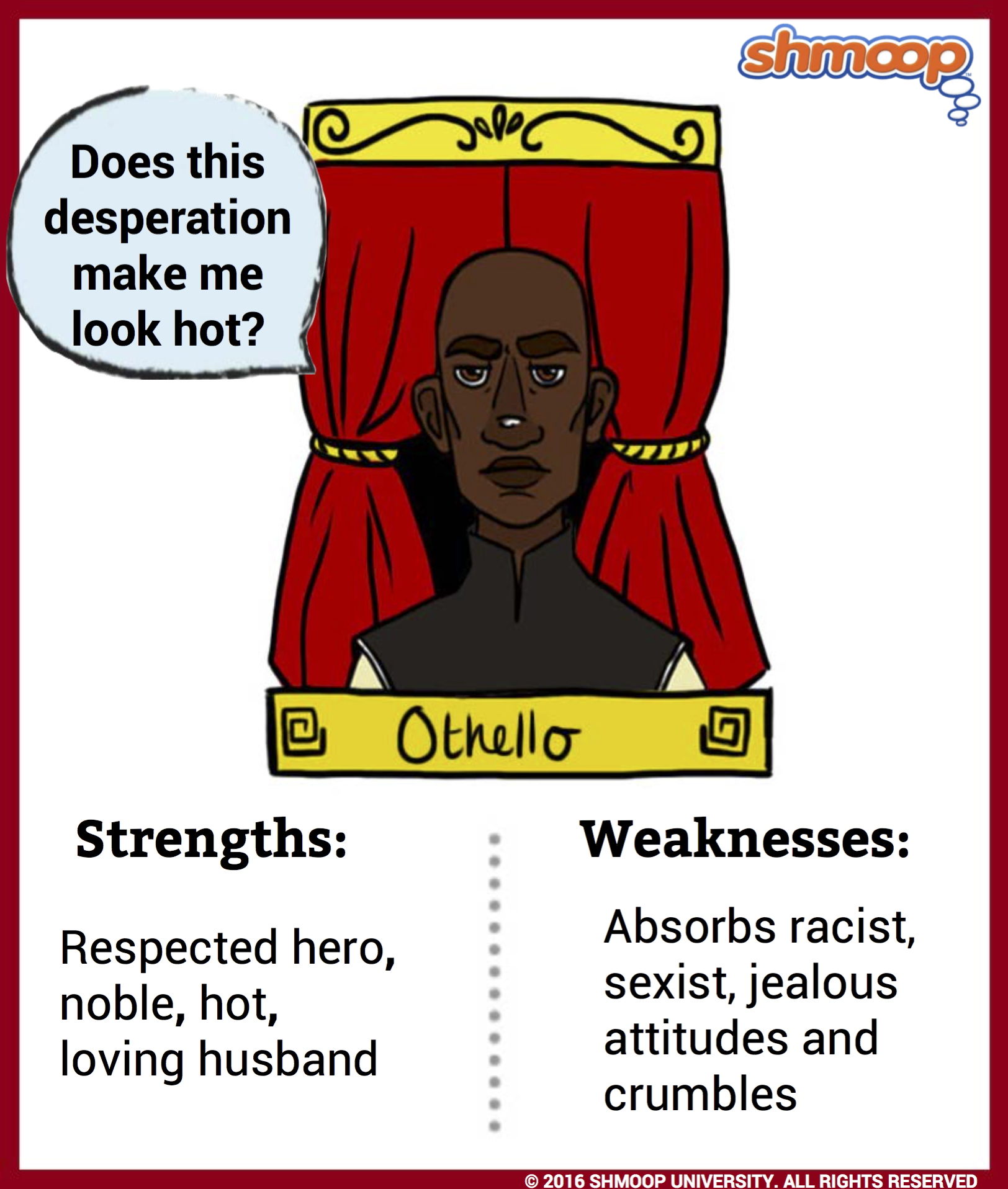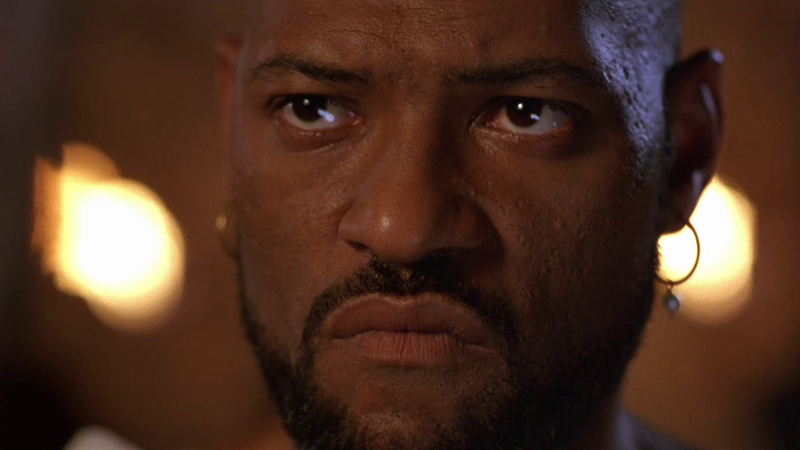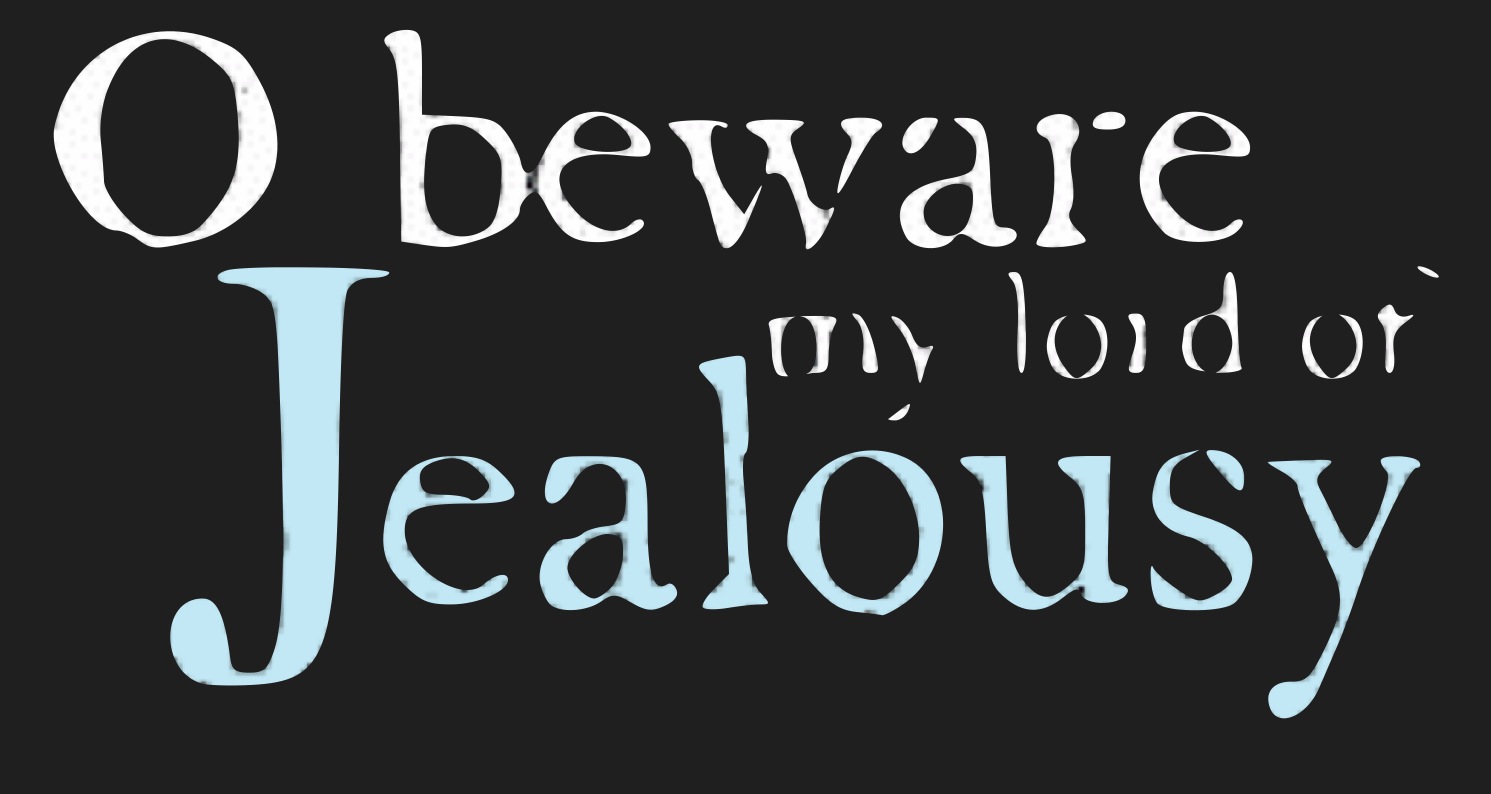

Here, Cinthio makes clear the ensign's wife is aware of her husband's plotting, but remains silent in fear of him. The next appearance of the ensign's wife in the tale occurs when Desdemona discusses her husband's troubling behaviour with her. However, his wife takes no part in the mischief. It is presumed his wife is present since Cinthio makes clear earlier in the tale that Desdemona often spent part of the day with the ensign's wife. In Cinthio, the ensign filches Desdemona's handkerchief when she visits his house and hugs his three-year-old daughter. She is described as "a beautiful and virtuous young woman" who, "being of Italian birth.was much loved by the Moor's wife, who spent the greater part of the day with her." The ensign, "not heeding at all the vows he had made his wife", lusts after Desdemona who, very much in love with the Moor, is oblivious to the ensign's passion. In Cinthio, the ensign's wife accompanies her husband to Cyprus. There's no mention in the source of the ensign's wife being Desdemona's attendant. Other characters are identified only as the Moor, the squadron leader, the ensign, and the ensign's wife – the original of Shakespeare's Emilia. The only named character in Cinthio's story is "Desdemona". Cinthio's tale may have been based on an actual incident occurring in Venice about 1508. While no English translation of Cinthio was available in Shakespeare's lifetime, it is probable that Shakespeare knew both the Italian original and Gabriel Chappuy's 1584 French translation.


Othello has its source in the 1565 tale, "Un Capitano Moro" from Gli Hecatommithi by Giovanni Battista Giraldi Cinthio. While considered a minor character in the drama, she has been portrayed by several notable actresses on film, with Joyce Redman receiving an Academy Award nomination for her performance. In Shakespeare, she is named Emilia, is the wife of Othello's ensign, Iago, and is an attendant to Othello's wife, Desdemona. There, the character is described as young and virtuous, is referred to simply as the ensign's wife, and becomes Desdemona's companion in Cyprus. The character's origin is traced to the 1565 tale, "Un capitano Moro" from Giovanni Battista Giraldi Cinthio's Gli Hecatommithi. Therefore, the protagonist and antagonist are central to the outcome because they develop each other’s character to create a hero and a villain who incite pity, fear, and pain among the audience.Desdemona's Death Song by Dante Gabriel RossettiĮmilia is a character in the tragedy Othello by William Shakespeare. Iago’s villainous conspiracies and Othello’s diminishing strength intertwine mutually to steer the play’s plot until the end. In conclusion, the central characters in the play Othello and Ioga are analogous in allowing their unfounded emotions to determine their actions and develop each other’s character. However, these traits are the failing of Othello when he unconditionally trusts who Iago betrays the trust. Loyalty and trust are the greatest strengths that encompass the character of Othello. Similar to the reeds that break rather than bend, Othello is the hero whose significant strength is turned into weaknesses by the villain (Van Duijn, Max, Ineke and Arie 152). Such sentiments are an indication of how Ioga breaks and torments Othello psychologically, making him more distrustful than he ever was. With Othello’s achievement as motivation, jealousy consumes Iago, and he resolves to manipulate and poison Othello’s mind. Iago, a capable and experienced soldier, allows jealousy to overpower him when he believes that he deserves Othello’s appointment as general (Nalisnick, Eric and Baird 481). Therefore, Othello influences Iago’s character and depicts him as an ambitious, frustrated individual whose motivation is a megalomaniac and a callous desire to have authority over those around him and Othello in particular. Ioga does not dwell on this accusation for long as he mentions it infrequently due to frustrations. One incident that makes Iago a chilling antagonist is when he says that he believes that his wife Emilia may have had an affair with Othello, stating, “I do suspect that the lusty Moor hath leaped into my seat (ACT 2.1). Therefore, Iago actively works to destroy Othello when he attempts to convince Othello that Desdemona is unfaithful to torment him (Nalisnick, Eric and Baird 481).

Othello’s behavior in the play is influenced by the knowledge that Iago does not trust nor accept him for his race and only tolerates him because he serves a particular purpose and does not think of him as his equal.


 0 kommentar(er)
0 kommentar(er)
